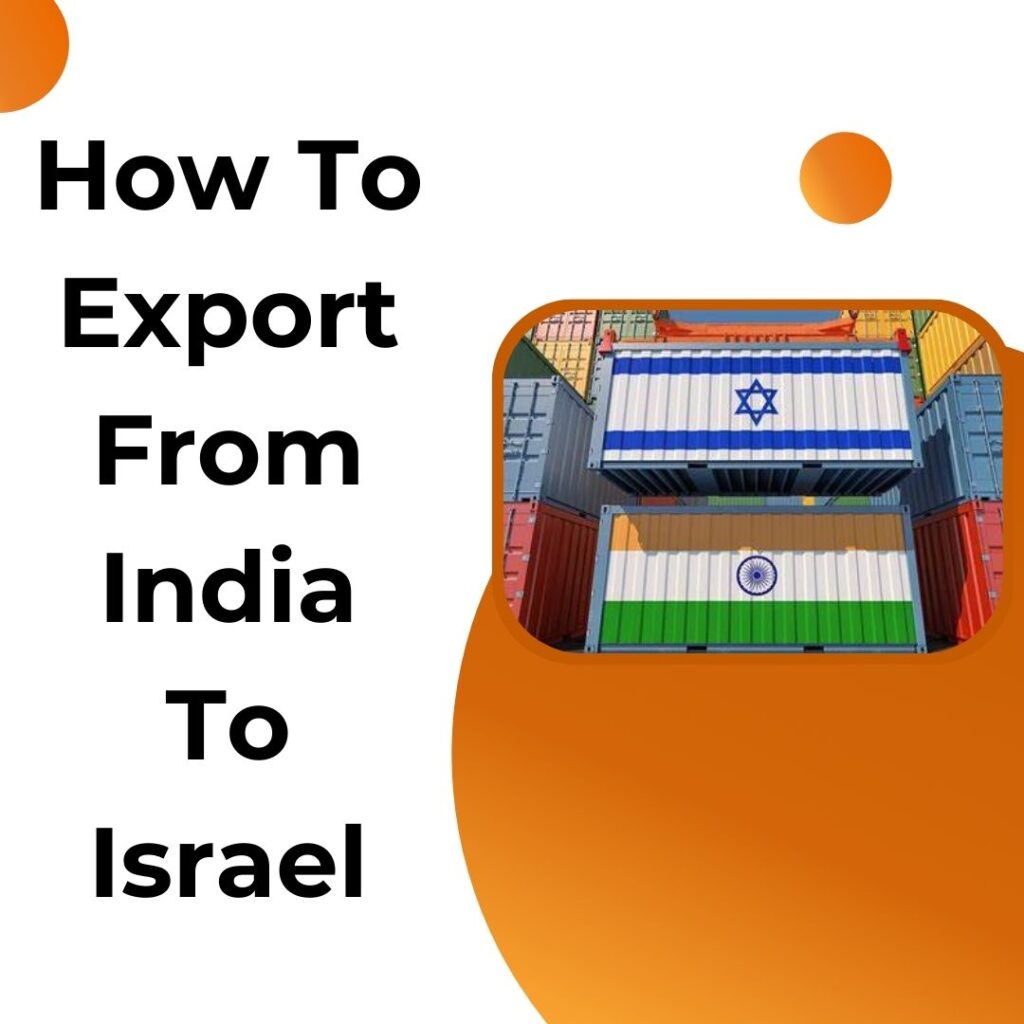1. Market Research:
Identify the demand for your product in the Israeli market.
Understand the rules and regulations related to the specific goods you intend to export.
2. Product Compliance:
Ensure your product complies with Israeli standards and regulations. Check for any specific certifications required.
3. Register Your Business:
Make sure your business is registered and compliant with Indian export regulations.
4. Get an Importer-Exporter Code (IEC):
Obtain an IEC from the Directorate General of Foreign Trade (DGFT) in India. This code is mandatory for any person importing or exporting goods and services.
5. Understand Customs Duties and Taxes:
Familiarize yourself with Israeli customs duties and taxes. This information is crucial for pricing your goods.
6. Documentation:
Prepare the necessary documentation, including:Commercial Invoice
Packing List
Bill of Lading or Airway Bill
Certificate of Origin
Insurance Certificate
Inspection Certificates (if required)
Any other specific documents required for your product.
7. Customs Clearance:
Work with a licensed customs broker or freight forwarder to facilitate the customs clearance process in Israel.
8. Shipping:
Choose a reliable and experienced international freight forwarder or shipping company to transport your goods.
9. Incoterms:
Clearly define the Incoterms (International Commercial Terms) in your sales contract to specify the responsibilities and costs between the buyer and seller.
10. Payment Terms:
Agree on payment terms with the Israeli buyer. Ensure that both parties are clear on the terms of payment.
11. Banking:
Work with your bank to facilitate international transactions. Consider using Letters of Credit or other secure payment methods.
12. Insurance:
Insure your goods during transportation. This helps mitigate the risk of loss or damage.
13. Cultural Considerations:
Be aware of cultural differences and business practices in Israel to establish good business relationships.
14. Post-Sale Support:
Provide necessary support and documentation even after the goods have been delivered to ensure customer satisfaction and compliance with any post-import requirements.
15. Consult with Experts:
If needed, seek assistance from trade consultants, legal experts, or trade associations to ensure compliance with all regulations.
Important Contacts:
DGFT India: Directorate General of Foreign Trade (https://dgft.gov.in/)
Israel Customs Authority: https://www.customs.gov.il/
Always keep yourself updated with the latest regulations and seek professional advice when necessary. Additionally, the political and economic situations may change, so it’s crucial to stay informed about any developments that may affect trade between India and Israel.



